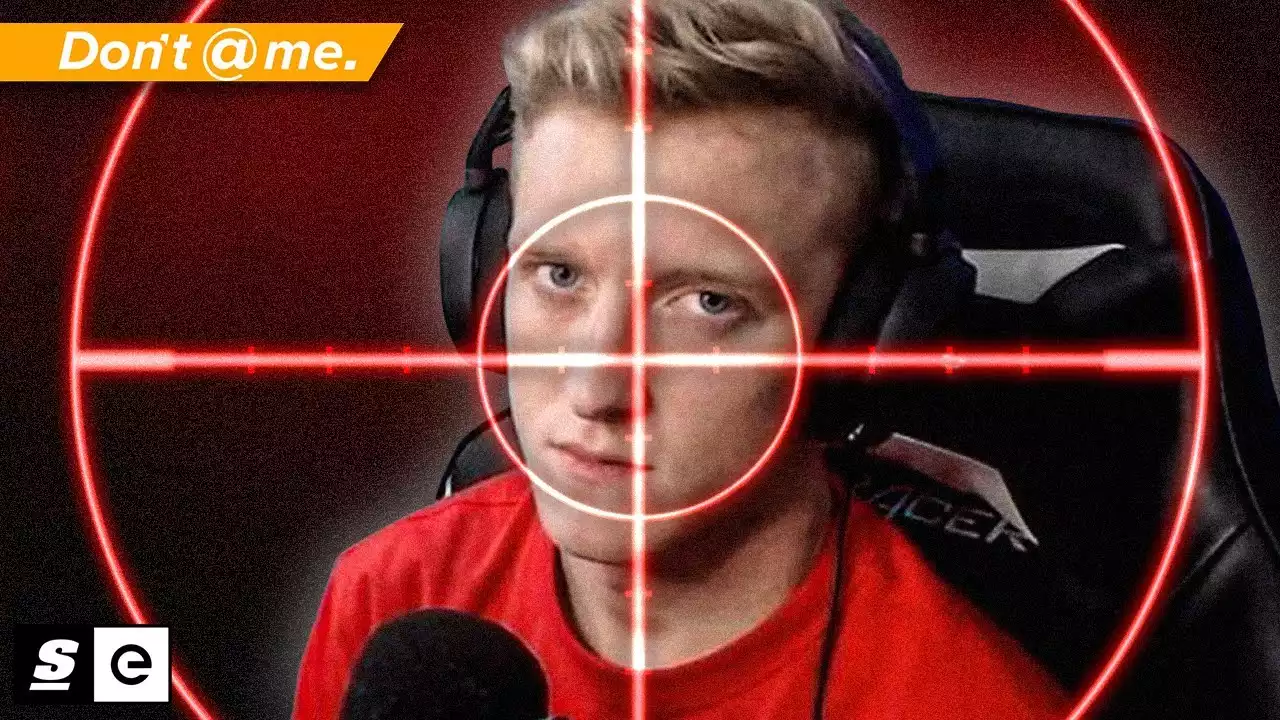The Rise of Fortnite Esports
Fortnite has been around for just a few years, but it has already made a huge impact in the world of esports. In 2018, Epic Games announced that they would be putting $100 million into Fortnite esports prize pools for the 2018-2019 season, making it one of the biggest esports events in history. Since then, Fortnite tournaments and leagues have become a staple of the esports scene, with players and teams from around the world competing for millions of dollars in prizes.
One of the reasons for Fortnite's success in esports is that it appeals to a wide range of players and audiences. Unlike other esports games that require a high level of skill and knowledge to understand, Fortnite's simple mechanics and easy-to-learn gameplay make it accessible to players of all levels. Additionally, Fortnite's emphasis on creativity and customization allows players to develop their own playstyle, which can make for exciting and unpredictable matches.
However, with the rise of Fortnite esports has come a new set of challenges that players, organizers, and fans must face.
The Challenges of Fortnite Esports
One of the biggest challenges facing Fortnite esports is the constantly shifting meta of the game. As new weapons, items, and mechanics are introduced, players must adapt their strategies and playstyles to stay competitive. This can be especially difficult for professional players who rely on consistency and mastery of certain gameplay elements.
Another challenge for Fortnite esports is the changing landscape of sponsorship and marketing. As esports continues to grow in popularity, more and more companies are looking to get involved and sponsor players and teams. However, with so many options available, it can be difficult for players and teams to navigate the complex world of esports sponsorship and find the right partners for their brand.
Finally, there is the challenge of maintaining a healthy and supportive community within Fortnite esports. As with any competitive scene, there can be toxicity and negativity from both players and fans. It is important for everyone involved in Fortnite esports to promote a positive and respectful environment that encourages growth and development.
Despite these challenges, there are also many opportunities for growth and success in Fortnite esports.
Opportunities in Fortnite Esports
One of the biggest opportunities in Fortnite esports is the potential for growth and exposure. As more and more players and fans get involved in the scene, there is the potential for Fortnite esports to become a truly global phenomenon. This could lead to more sponsorships and partnerships, as well as increased media coverage and recognition for the best players and teams.
Another opportunity in Fortnite esports is the potential for innovation and creativity. With its unique gameplay mechanics and emphasis on building and customization, Fortnite offers a wide range of possibilities for new and exciting gameplay strategies. This can lead to exciting matches and unexpected outcomes, which can be a huge draw for both players and fans.
Finally, there is the opportunity for players and teams to develop their own brand and identity within the Fortnite esports community. By cultivating a strong social media presence and engaging with fans, players and teams can build a loyal following and establish themselves as leaders in the scene.
The Role of Technology in Fortnite Esports
As with any esports game, technology plays a crucial role in the success of Fortnite esports. From the hardware and software used by players to the broadcasting and streaming technology used by organizers, technology is what allows Fortnite esports to reach a global audience and provide a seamless and engaging experience for players and fans alike.
One of the most important pieces of technology in Fortnite esports is the game itself. As the game continues to evolve and update, it is important for players and organizers to stay up-to-date with the latest changes and developments. This can include everything from new weapons and items to changes in the gameplay mechanics and meta.
Another important piece of technology in Fortnite esports is the hardware used by players. This can include everything from gaming mice and keyboards to high-end graphics cards and processors. By using the best hardware available, players can ensure that they are performing at their best and giving themselves the best chance at success.
Finally, there is the technology used for broadcasting and streaming Fortnite esports events. From cameras and microphones to streaming software and platforms, technology is what allows fans from around the world to watch their favorite players and teams compete in real-time. It is important for organizers to invest in high-quality technology to ensure that their broadcasts are engaging, high-quality, and accessible to all.
The Importance of Collaboration in Fortnite Esports
One of the most important aspects of Fortnite esports is collaboration. Whether it's between players and coaches, teams and sponsors, or fans and organizers, collaboration is what allows the Fortnite esports community to grow and thrive.
For players and teams, collaboration can take many forms. This can include working with coaches and analysts to develop new strategies and improve their gameplay, as well as collaborating with sponsors and partners to promote their brand and reach new audiences. Additionally, players and teams can collaborate with each other to share knowledge and support each other in their competitive journey.
For fans and organizers, collaboration can also be crucial. By working together to promote a positive and supportive environment, fans and organizers can create a community that is welcoming and inclusive for all. Additionally, organizers can collaborate with sponsors to provide the best possible experience for players and fans, while also promoting their brand and supporting the growth of Fortnite esports as a whole.
How to Get Involved in Fortnite Esports
If you're interested in getting involved in Fortnite esports, there are many ways to start. One of the best ways is to start playing the game and practicing your skills. Whether you're playing on your own or with a team, practicing regularly is key to developing the skills and knowledge you need to succeed in Fortnite esports.
Another way to get involved is to follow the Fortnite esports scene and stay up-to-date with the latest news and developments. This can include watching tournaments and leagues, following players and teams on social media, and engaging with the community on forums and other platforms.
Finally, if you're interested in competing in Fortnite esports, there are many tournaments and leagues available for players of all levels. From local tournaments to international events, there are many opportunities to showcase your skills and compete against some of the best players in the world.
Key Players and Teams in Fortnite Esports
As with any esports scene, there are many key players and teams that have made a name for themselves in Fortnite esports. Some of the most successful players and teams include:
- Kyle "Bugha" Giersdorf: Winner of the 2019 Fortnite World Cup Solo Championship and one of the most successful Fortnite players of all time.
- Turner "Tfue" Tenney: A popular streamer and professional Fortnite player who has won multiple tournaments and leagues.
- Sentinels: One of the most successful esports organizations in Fortnite, with multiple championship titles and a strong roster of players.
- FaZe Clan: Another top esports organization in Fortnite, with some of the biggest names in the scene and a strong social media presence.
These players and teams are just a few examples of the talent and success that can be found in Fortnite esports, and they serve as inspiration for aspiring players and fans.
The Future of Fortnite Esports
As Fortnite esports continues to grow and evolve, the future is both exciting and uncertain. With new updates and changes to the game, as well as new players and teams entering the scene, there is always the potential for new and unexpected developments.
One thing is certain, however: Fortnite esports will continue to be a major force in the world of esports, offering exciting and engaging gameplay, huge prizes, and a vibrant and supportive community. Whether you're a player, organizer, or fan, there are many challenges and opportunities ahead, and it's up to all of us to gear up and embrace them. With collaboration, innovation, and dedication, the future of Fortnite esports looks bright.














